Blog
Suffering From TMJ? Try Acupuncture!

What is TMJ?
The temporomandibular joint (TMJ) connects the jawbone to the skull and supports jaw movement during eating and talking.
Temporomandibular syndrome or disorder, commonly known as TMJ or TMD, is a condition that affects the temporomandibular joint and its surrounding nerves and muscles. TMJ disorders affect over 10 million Americans and can arise due to one or more factors such as jaw injury, genetics, poor posture, arthritis and stress.
What are some symptoms of TMJ?
Common symptoms associated with TMJ include pain while chewing, jaw stiffness, and jaw-locking or ‘grating’ that often cause severe discomfort and tenderness. Swelling around the jaw area or pain around the ears and on the sides of the face are also common.
It’s possible to treat TMJ pain using over-the counter anti-inflammatory drugs, corrective bite plates, stress management or jaw exercises. However, the relief is often temporary, since there is no known cure for the disorder. It’s also difficult, since no specific test (other than an analysis of symptoms) can determine its cause.
A behavioural shift may sometimes be needed to alleviate symptoms that may be psychological in origin.
Can acupuncture treat TMJ?
Various studies suggest that acupuncture can help control symptoms associated with TMJ. Acupuncture is an ancient branch of traditional Chinese medicine in which thin needles are inserted in the skin and manipulated to balance the body’s energy meridians. Depending on the condition being treated, heat or electric stimulation may also be applied during acupuncture. Its practitioners – and the millions of people who swear by the ancient practice, especially in China – believe that acupuncture can restore one’s health by unblocking and balancing the body’s ‘Qi’(pronounced “chee”).
Acupuncture is usually painless and safe when done by a licensed therapist, although you may encounter a faint tingling sensation or a dull ache around the points. These feelings usually subside in a while.
Extensive research has been conducted to prove the effectiveness of acupuncture for treating various conditions, including TMJ. In 1970, studies documented that acupuncture triggers biological reactions that help reduce pain by activating the release of neurotransmitters and endorphins in the body. Endorphins play an important role in stabilizing your mood and relieving pain. The stimulation from acupuncture may also enhance nerve signal quality and alter pain perception, thereby reducing pain.
Acupuncture has been widely used as a complementary therapy with Western medicine, especially for pain management. It is known to reduce pain and inflammation caused by TMJ. It helps treat underlying causes like stress and system imbalances by boosting immunity and eliminating toxins from the body.
Acupuncture helps relax muscle spasms and stiffness caused by TMJ dysfunction. It helps to relieve stress held in the jaw muscles, allowing the jaw to unclench and the joints to move freely. The number and frequency of acupuncture sessions you need will depend on your condition. Consult your therapist to discuss what might work best for you.
In summary, acupuncture is a great option to consider for the treatment of TMJ disorders. It can reduce pain and accelerate recovery or be used for to manage TMJ symptoms over the long term. It also offers a host of other benefits, such as mental relaxation and improvements in overall well-being.









